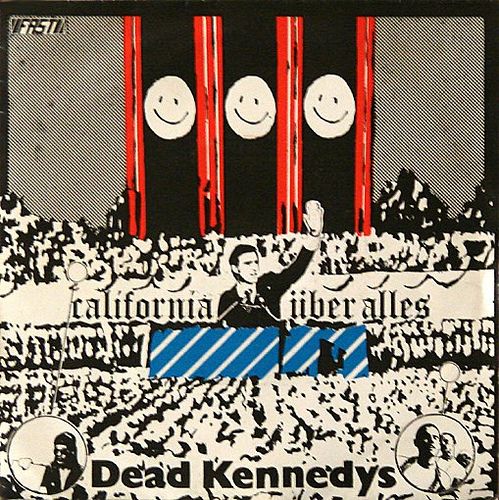Election pre-mortem

JUNE3, 2010
By JOHN SEILER
What a mess departing Gov. Arnold Schwarzenegger is leaving for his successor. Endemic deficits. A bond rating the lowest of any state, inching toward junk-bond status. School performance vying with Louisiana for America’s worst. The King of California during his re-election just two years ago, today Arnold’s reputation in politics has deflated like his muscles after the end of his bodybuilding career.
Yet three major candidates, presumably sane, are seeking the job in the June 8 primary. Jerry Brown, the attorney general and former governor, is a shoo-in for the Democratic Party’s nomination. For Republicans, former eBay honcho Meg Whitman leads Insurance Commissioner Steve Poizner, both spending tens of millions of dollars of their personal fortunes for the honor of wrestling with a recalcitrant Legislature to balance a state budget tens of billions of dollars in the red.
“The main thing is everything stinks,” Jack Pitney observed of the governor’s race; he’s Roy P. Crocker Professor of American Politics at Claremont McKenna College and author of “The Art of Political Wafare.” Everyone has a plan to solve the deficit disaster, he told me, “but the specifics get a little hazy” from each of the candidates.
“Whitman said she would reduce the head count” of government workers. “But the question is: How to get that through the Legislature?”
Whitman insists she will run California more like a business. But at eBay, if a department wasn’t performing, it could be cut fairly easily. Try doing that to state departments chartered in the state constitution, or workers protected by the highly powerful government unions.
Poizner has a plan to cut tax rates 10 percent to broaden the tax base, thus raising more tax revenue. “But he seems to be overestimating the supply-side effects of the tax cuts,” Pitney warned.
Poizner lays out his proposal in his Jobs Plan, citing Reagan’s success. But he doesn’t note that Reagan ran deficits his whole time in office, something that was tolerable because the economic growth was so strong that, by the 1990s, the federal government was running surpluses (until the wild spending of the 2000s).
But a California governor is required by the California Constitution to submit a balanced budget. And whereas Reagan’s U.S. tax cuts lifted America, indeed the world, into the 1980s prosperity, California’s main problem is not the admittedly faulty policies in the state government, but the national recession.
Jerry, Part V
Jerry Brown gets a bye on Tuesday. But his problem, Pitney said, is that this is the fifth Brown race for a state constitutional office: for secretary of state in 1970, attorney general in 2006, and governor in 1974, 1978 and 2010. “That’s going to make it tough for him in an outsider year.”
On the state budget, Brown has promised never to raise taxes without the voters’ approval. “It’s hard to tell what Jerry Brown ever means,” Pitney observed. “He’s a clever fellow. There’s probably a verbal parachute attached to that statement.”
Pitney also noted that Brown has closed ranks with the government unions. “Which means he’s not going to do diddly about the deficit.”
Deficits galore
So it seems that, among the three major candidates, one of whom will become governor, there’s no real solution to the deficit.
“I think we’re at a point we haven’t witnessed before,” Pitney said. The only prod left to action after next year’s inauguration will be the “threat of default. This then will force actions for real reform. But what action that takes – who knows?”
I would add that much depends on the national economic situation. I’ll be reporting later this week on Chapman University’s latest economic forecast. But if the national economy gets worse, or even remains stagnant, then California’s hard choices will become as hard as diamonds.
The U.S. Senate race
The other top race is for the U.S. Senate seat currently held by Democrat Barbara Boxer, who will win her primary easily. Vying on the GOP side are Carly Fiorina, the former CEO of Hewlett-Packard, former Rep. Tom Campbell, and state Assemblyman Chuck DeVore.
Polls currently show Fiorina ahead of Campbell, 38 percent to 26 percent, with DeVore trailing at 16 percent. But Pitney said Campbell, a proud moderate, could surge on the electability issue. And if DeVore cuts into Fiorina’s support on the right, then Campbell might squeak by.
But whoever wins will have a tough go against the battle-hardened Boxer. Although always less popular and more liberal than her Marin County neighbor Sen. Dianne Feinstein, Boxer has run tough races against her GOP opponents. She has had to just to survive. “Boxer still is the favorite,” Pitney said. “Though she’ll have to work for it.”
“If Fiorina wins the nomination,” he predicted, “you’ll have to take out a stop watch to clock how fast Boxer puts up attack ads on Fiorina’s departure from HP,” where Fiorina was asked to resign. Her tenure at the company also has brought opposition to her candidacy from the descendants of HP co-founder David Packard.
On the other hand, Boxer does have liabilities, including such recent ones as unstinting support of the unpopular bailouts and the medical reform of the Obama administration.
On the issues, Fiorina comes across as a fairly typical big-business Republican. She has tacked right in the primary to fend off DeVore.
Campbell showed courage in Congress in 1999 when he led Republican opposition to Bill Clinton’s bombing of Serbia in the Kosovo skirmish that killed 5,000 Serbs and put the al Qaeda-connected Kosovo Liberation Army in power. But he has favored tax increases, a toxic issue for a GOP candidate.
DeVore has the strongest conservative credentials, and is popular with many Tea Partiers. But he has supported the Iraq and Afghanistan wars that, in addition to the loss of life of U.S. troops, Afghans and Iraqis, have emptied the U.S. treasury. He does oppose “nation building.”
DeVore, with fewer contributions than Fiorina and Campbell, has waged a guerrilla campaign largely on the Internet. Although he is unlikely to be successful Tuesday, this technique and list of supporters could put him in good stead in 2012 if he runs against Feinstein, or some other Democrat should she choose not to run. In much the same way, Ronald Reagan built his 1980 victory on his 1976 defeat.
John Seiler, an editorial writer with The Orange County Register for 19 years, is a reporter and analyst for CalWatchDog.com. His email: [email protected].
Related Articles
California readies for contested presidential primary
As the GOP field consolidates in a bitterly contested election season, California Republicans brace for an uncertain but likely bruising state primary.
Will failed Prop. 209 rollback help GOP with Asian voters? It depends
With Asian-Americans making up 14 percent of the state’s electorate, there is a small but real chance that this past
Gavin Newsom takes steps to run for governor of California
Shaking up an already fast-moving political landscape, Lt. Gov. Gavin Newsom revealed in an email to his list that he had taken




